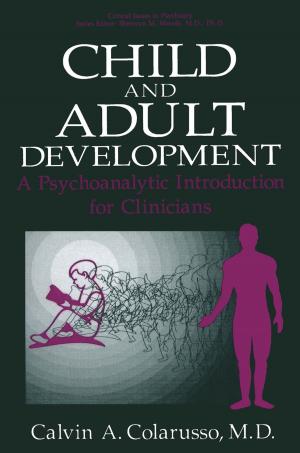Attention and Cognitive Development
Nonfiction, Health & Well Being, Psychology, Cognitive Psychology| Author: | ISBN: | 9781461329855 | |
| Publisher: | Springer US | Publication: | December 6, 2012 |
| Imprint: | Springer | Language: | English |
| Author: | |
| ISBN: | 9781461329855 |
| Publisher: | Springer US |
| Publication: | December 6, 2012 |
| Imprint: | Springer |
| Language: | English |
"My experience is what I agree to attend to," wrote William James (1890) nearly a century ago in his Principles of Psychology. Although certainly not the first to recognize the importance of attention in man's experience--poets and philosophers throughout history have touched upon the concept in one way or another-James deserves credit for having accorded attention a central role in the systematic study of the mind. With the advancement of psychology since that time, except during the behaviorist digression, the concept of attention has been an integral part of many prominent theories dealing with learning, thinking, and other aspects of cognitive functioning. Indeed, attention is an important determinant of experience from birth throughout development. This has been an implicit assumption underlying our view of cognition since the writings of Charles Darwin (1897) and Wilhelm Preyer (1888) as well as James, all of whom offered provocative insights about the developing child's commerce with the environment. Al though systematic research on attention in children was slow to pick up during the early part of this century, interest in the developmental study of attention has expanded enormously in recent years.
"My experience is what I agree to attend to," wrote William James (1890) nearly a century ago in his Principles of Psychology. Although certainly not the first to recognize the importance of attention in man's experience--poets and philosophers throughout history have touched upon the concept in one way or another-James deserves credit for having accorded attention a central role in the systematic study of the mind. With the advancement of psychology since that time, except during the behaviorist digression, the concept of attention has been an integral part of many prominent theories dealing with learning, thinking, and other aspects of cognitive functioning. Indeed, attention is an important determinant of experience from birth throughout development. This has been an implicit assumption underlying our view of cognition since the writings of Charles Darwin (1897) and Wilhelm Preyer (1888) as well as James, all of whom offered provocative insights about the developing child's commerce with the environment. Al though systematic research on attention in children was slow to pick up during the early part of this century, interest in the developmental study of attention has expanded enormously in recent years.















